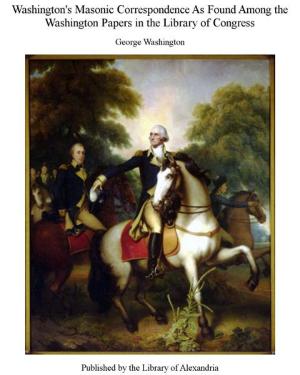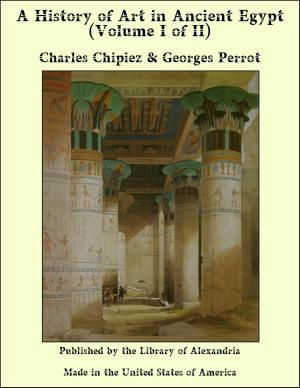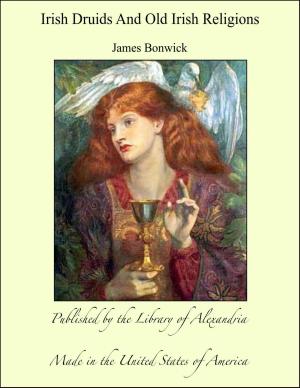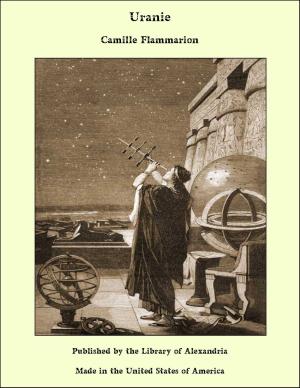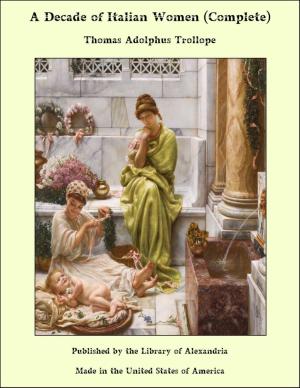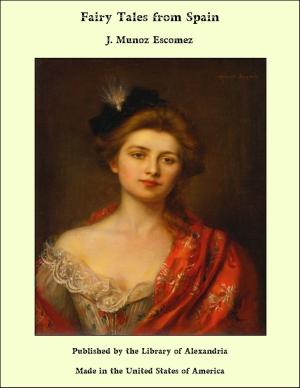Biography of Rev. Hosea Ballou
Nonfiction, Religion & Spirituality, New Age, History, Fiction & Literature| Author: | Maturin Murray Ballou | ISBN: | 9781465548702 |
| Publisher: | Library of Alexandria | Publication: | March 8, 2015 |
| Imprint: | Language: | English |
| Author: | Maturin Murray Ballou |
| ISBN: | 9781465548702 |
| Publisher: | Library of Alexandria |
| Publication: | March 8, 2015 |
| Imprint: | |
| Language: | English |
The gratitude of mankind has not failed to record with honor the names of those who have been the inventors of useful improvements in the arts, or the authors of scientific discoveries, of brave warriors and wise statesmen; ancient history reveals to us the time when the inventors of letters and the plough, were revered as divinities. If there are any who are actually worthy of being remembered by the world, they are those who have proved themselves, by the lives they have led, and by their holy teachings, to be benefactors of the human family, and true followers of Christ. It is conceded by all, that biography is a most important species of history. Through its agency, men who have been distinguished for merit, talent, or any peculiar virtue, are remembered, and, though they may be personally lost to us, yet the good influence they exerted during their lives, is made to continue for our benefit. The biography of any eminent individual must be, in some degree, a chronicle of the times in which he lived, and thus, though the production may be of the most humble character, the pages of history are enriched, and the records of the past perfected. We think it was the Rev. John Ewart, M. A., a noted English divine, who set it down as one of the most interesting reflections relative to biographical reading, that we may see and know in heaven, those whose life and excellent works we have read of here. This is, perhaps, rather a peculiar argument, but not inappropriate in this connection. For our own part, we have ever perused, with the liveliest satisfaction, any book of a biographical character, and believe that such works are almost universally read with avidity and profit. With living men and present measures, there is generally some prejudice or passion connected. But when death has set his seal upon a worthy character, and he has departed from the din and conflict of the world, then we can receive the full benefit of his example. For it is very true that genius rarely shines with full lustre until death hath unroofed it of envy. It will, therefore, be my object in these pages to adhere to those facts best fitted to illustrate the personal character of Mr. Ballou, and to furnish the means of estimating aright the services he rendered to his own and subsequent times, that his memory may remain to us in evergreen freshness and beauty, and thus renew to posterity the savor of a good life. It is the usual practice with biographers to dwell at length and in explanation upon the discoveries and doctrines of the object of their labors, forgetting, apparently, that these things are almost universally known already, and that the main design of a biography should be to make public and illustrate the private life of those whom the world already knows as philosophers, statesmen, divines, or otherwise. It is said of Mallet, that he wrote the life of Lord Bacon, and forgot that he was a philosopher. But this is rarely the case, for it is the prevailing custom, and has ever been, to forget the man in the remembrance of the philosopher. It is the traits of personal character, those slight, yet important incidents and anecdotes which mark the individual's every-day life, that, when preserved and recorded, form the great interest and charm of biography. Plutarch, the writer of half a hundred lives, in that of Alexander says:—"As painters labor the likeness in the face, so must we be permitted to strike off the features of the soul, in order to give a real likeness of these great men
The gratitude of mankind has not failed to record with honor the names of those who have been the inventors of useful improvements in the arts, or the authors of scientific discoveries, of brave warriors and wise statesmen; ancient history reveals to us the time when the inventors of letters and the plough, were revered as divinities. If there are any who are actually worthy of being remembered by the world, they are those who have proved themselves, by the lives they have led, and by their holy teachings, to be benefactors of the human family, and true followers of Christ. It is conceded by all, that biography is a most important species of history. Through its agency, men who have been distinguished for merit, talent, or any peculiar virtue, are remembered, and, though they may be personally lost to us, yet the good influence they exerted during their lives, is made to continue for our benefit. The biography of any eminent individual must be, in some degree, a chronicle of the times in which he lived, and thus, though the production may be of the most humble character, the pages of history are enriched, and the records of the past perfected. We think it was the Rev. John Ewart, M. A., a noted English divine, who set it down as one of the most interesting reflections relative to biographical reading, that we may see and know in heaven, those whose life and excellent works we have read of here. This is, perhaps, rather a peculiar argument, but not inappropriate in this connection. For our own part, we have ever perused, with the liveliest satisfaction, any book of a biographical character, and believe that such works are almost universally read with avidity and profit. With living men and present measures, there is generally some prejudice or passion connected. But when death has set his seal upon a worthy character, and he has departed from the din and conflict of the world, then we can receive the full benefit of his example. For it is very true that genius rarely shines with full lustre until death hath unroofed it of envy. It will, therefore, be my object in these pages to adhere to those facts best fitted to illustrate the personal character of Mr. Ballou, and to furnish the means of estimating aright the services he rendered to his own and subsequent times, that his memory may remain to us in evergreen freshness and beauty, and thus renew to posterity the savor of a good life. It is the usual practice with biographers to dwell at length and in explanation upon the discoveries and doctrines of the object of their labors, forgetting, apparently, that these things are almost universally known already, and that the main design of a biography should be to make public and illustrate the private life of those whom the world already knows as philosophers, statesmen, divines, or otherwise. It is said of Mallet, that he wrote the life of Lord Bacon, and forgot that he was a philosopher. But this is rarely the case, for it is the prevailing custom, and has ever been, to forget the man in the remembrance of the philosopher. It is the traits of personal character, those slight, yet important incidents and anecdotes which mark the individual's every-day life, that, when preserved and recorded, form the great interest and charm of biography. Plutarch, the writer of half a hundred lives, in that of Alexander says:—"As painters labor the likeness in the face, so must we be permitted to strike off the features of the soul, in order to give a real likeness of these great men

